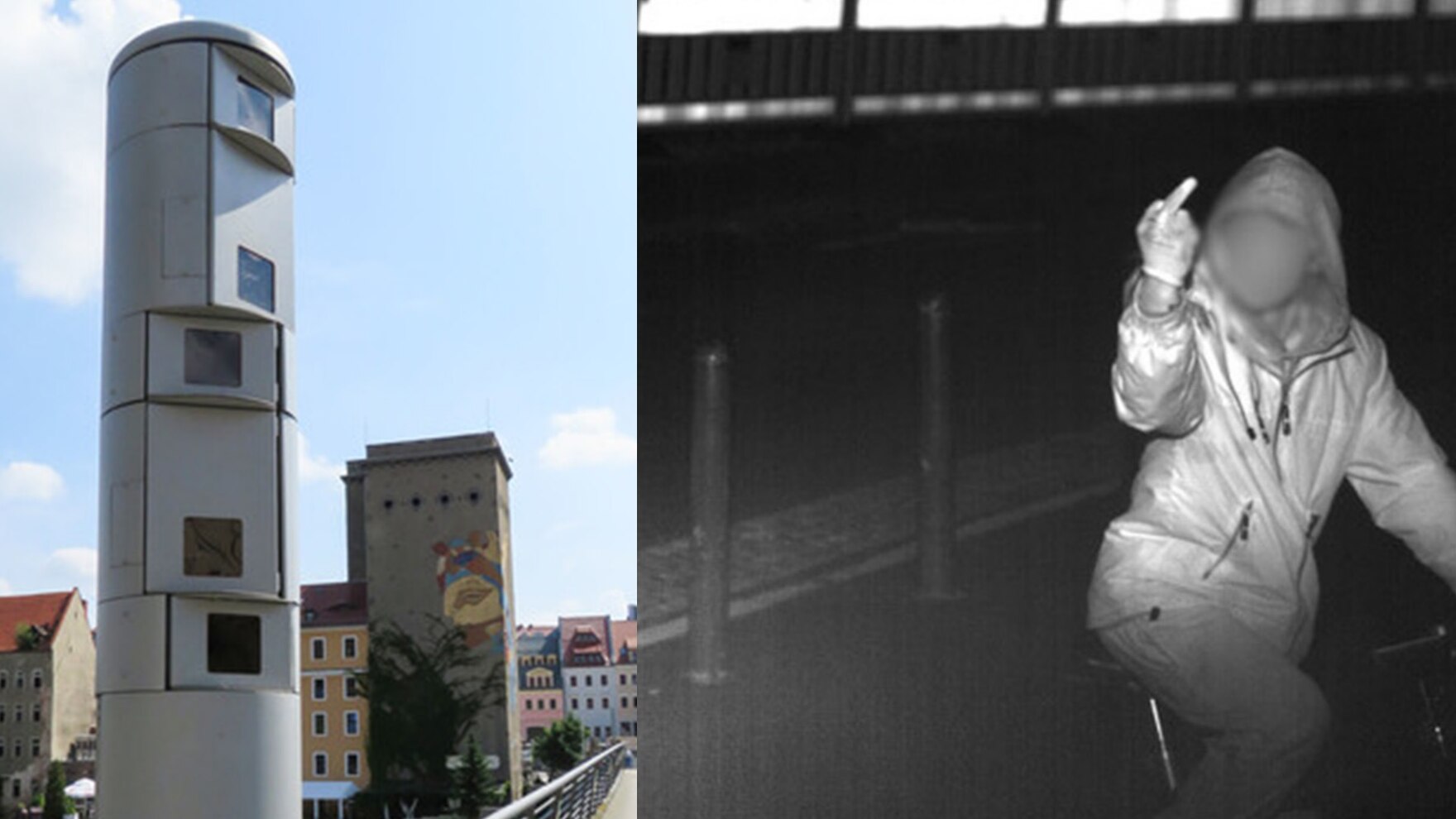Saxony stops querying faces and license plates in Upper Lusatia. The expense of the pilot project, which cost millions, was too high, he said.
All German police agencies have access to a facial recognition system at the Federal Criminal Police Office, which has been in operation there since 2008. However, these photos can only be compared retrospectively, for example with pictures of unknown suspects. Real-time recognition of such facial images does not exist anywhere in Germany – with the exception of Saxony. However, this system is to be switched off at the end of the year, Interior Minister Armin Schuster (Christian Democratic Union, CDU) explained to the Cabinet on Tuesday.
Since 2019, police in Upper Lusatia have been monitoring motor vehicles and pedestrians with a “Person Identification System” (Peris). It is operated by the special commission “Argus” in Görlitz, which is to pursue crimes in the area of property crime on the German-Polish border. For this purpose, license plates are scanned and compared with existing data. In this way, it can be discovered whether a vehicle is wanted in German or European police databases. “In case of suspicion”, the information is stored for further investigations. All other data is to be deleted after 96 hours.
Faces can also be searched for in police databases using “Peris”. Allegedly, however, this function is used “for data protection reasons only on the instructions of the public prosecutor and only in the case of serious crimes,” says the head of the “Argus” task force. In Görlitz, for example, an “Islamist dangerous person” was discovered in this way and this information was “passed on to Berlin”.
The Görlitz police procured the video surveillance system from the Bremen-based company Opto Precision. It consists of ten pillars installed at intersections, at the border crossing with Poland and at a pedestrian bridge between Görlitz and Zgorzelec, the Polish part of the city. In addition, there are mobile cameras in police vehicles. Allegedly, the recordings of “Peris” are so razor-sharp that even serial numbers of devices on the back seat of vehicles can be recognized. Recordings are even possible when cars are traveling at speeds of up to 300 kilometers per hour.
According to a presentation by the Goerlitz police to the EU border agency Frontex, “Peris” cost €5 million. By the beginning of this year, the system had scanned some 6.5 million faces and 300,000 license plates. When used for law enforcement, 560 search hits had been generated, he said.
Image recordings of “Peris” are permitted in the entire 30-kilometer border region of Upper Lusatia. As a legal basis, the state government had amended Section 59 of the Saxon Police Enforcement Service Act. Since 2019, the police are allowed to counter serious cross-border crime with the “use of technical means”. This also includes facial recognition without any reason.
The regulation is limited until December 31, 2023, and was to be evaluated for its usefulness after three years. The state government commissioned the Speyer Research Institute for Public Administration with this task. With the recognition system, “new legal, technical and professional territory has been entered,” the state government now states in its findings. However, the “technical and personnel expenditure was very large”. For this reason, the legal standard is not to be extended after the end of the year.
The announcement is surprising, because the Saxon interior authorities had praised “Peris” as a success in the fight against crime. According to the head of the “Argus” task force, the use of the technology had been “particularly helpful”; the number of serious thefts had been drastically reduced around Görlitz two years after its introduction. As late as March, it was said that additional surveillance vehicles were to be purchased for Görlitz. The installation of seven surveillance columns in Zittau was also planned for November. This apparently will now come to nothing.
With the shutdown of “Peris” and the associated non-renewal of the legal norm, one aspect of a norm control lawsuit filed by the parliamentary groups of the Left Party and the Green Party against the police law in Saxony in 2019 is also no longer applicable. After almost exactly four years, the Constitutional Court there has scheduled a hearing for mid-September.
The two parliamentary groups have retained Matthias Bäcker, a professor of law and economics at the University of Mainz, to represent them in the case. Among other things, he criticizes the fact that the use of “Peris” is allowed to take place without any reason according to the police law: “As a result, area-wide surveillance becomes possible, which would be unconstitutional from my point of view.”
Published in German in „nd“.
Image: Saxonian Police.





Leave a Reply